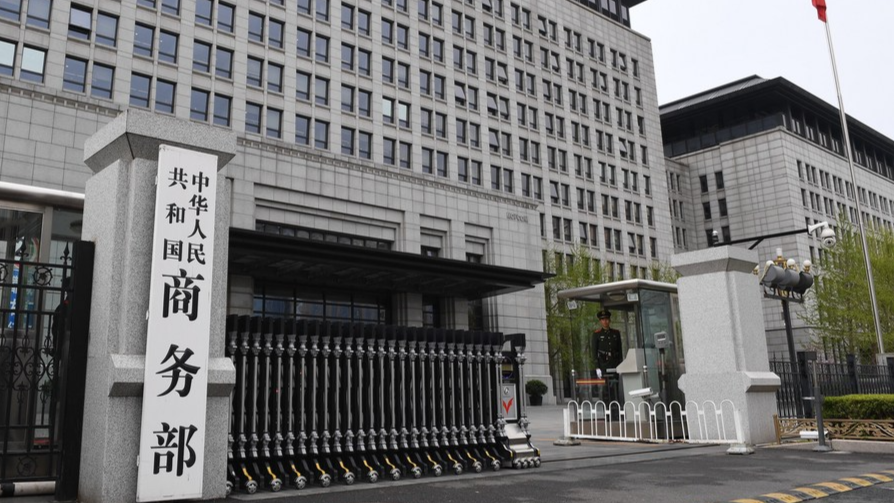
China's proposal to adjust its catalog of technologies subject to export bans or restrictions aligns with international practices and will enhance its management of technology trade, industry scholars said on Friday.
The Ministry of Commerce on Thursday issued a notice soliciting public feedback on the adjustment of a catalog of technologies that are subject to export bans or restrictions.
The adjustment, initiated by the Ministry of Commerce and the Ministry of Science and Technology, would add one item, revise one item and remove three items from the catalog to create favorable conditions to support international technological exchange and cooperation.
Apart from proposing to tighten export restrictions on battery cathode material preparative technology, China plans to enhance export curbs on specific technologies and processes used for extracting metallic gallium and lithium, which are essential for the semiconductor, electric vehicle and consumer electronics industries.
The soliciting of public opinion on the proposals will continue until Feb 1, said the Ministry of Commerce.
READ MORE: China solicits public opinion on adjustment of tech export ban catalog
Experts said that aligning its export control system with international norms helps China to integrate more effectively into the global technological ecosystem.
By adjusting the catalog, China aims to create favorable conditions for supporting technological exchange and cooperation with other countries. This is crucial as global collaboration on advanced technologies fosters mutual benefits, economic growth and shared progress, said Ding Rijia, a professor specializing in industrial economy at the China University of Mining and Technology in Beijing.
"The revision of the catalog is part of an effort to balance the protection of critical technologies and mineral resources, while still encouraging innovation and technological exchange on a global scale," said Ding.
Sharing similar views, Cui Fan, a professor specializing in international trade at the Beijing-based University of International Business and Economics, said that through the revision of its export restrictions, China can better manage the export of technologies that may have national security implications or are vital for technological growth within the country.
It also assists domestic companies in expanding global markets in a legal and compliant manner, said Cui, adding that global businesses can still access these technologies by obtaining export permission from the Chinese government.
The catalog of technologies prohibited or restricted from export is the key legal instrument defining what technologies fall into the "prohibited" and "restricted" categories. The United States, the European Union, Japan and South Korea all have governing bodies and specific policy measures to regulate their technology trade.
For instance, the US Department of Commerce's Bureau of Industry and Security (BIS) administers US laws, regulations and policies governing the export and reexport of commodities, software and technology falling under the jurisdiction of the export administration regulations.
ALSO READ: China imposes export controls on 28 US entities
The primary goal of the BIS is to advance national security and promote continued US strategic technology leadership, according to the US Department of Commerce.
The Chinese government issued an updated catalog of technologies that are subject to export bans or restrictions in late 2023. The revised catalog reduces the number of controlled items from 164 to 134, according to information released by the Ministry of Commerce.


